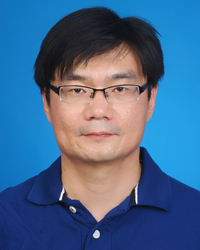|
| Professor Address: Room C305, ZhenJiang Building, Xianlin Campus, Nanjing University Tel: 025-83597175 Email: zwh@nju.edu.cn |
| Research field Nano-Optics Nano-Fabrication Scanning probe technology Biosensor Computational electromagnetics Courses Principles of Optics (for postgraduates) Profile Zhang Weihua is now a professor and doctoral supervisor at Nanjing University and was selected into the Overseas Young Scholars Project of China. While he was still in doctoral studies, he won the Chinese Government Award for Outstanding Self-Financed Students Abroad. In 2008, he received his doctorate from the Department of Chemistry and Applied Biosciences, Eidgenössische Technische Hochschule Zürich, Switzerland. From 2008-2013, he worked as a post-doctoral researcher at Nano Optics and Metrology Laboratory of École polytechnique fédérale de Lausanne and NanoStructures Laboratory of Princeton University. In 2013, he joined the College of Engineering and Applied Sciences, Nanjing University. Professor Zhang’s research focuses on nano-optics research and has made internationally influential contributions in tip-enhanced Raman spectroscopy, optical tweezers, and biosensors. He has pushed the sensitivity of tip-enhanced Raman spectroscopy to the single-molecule level. Through nano-optical antenna, he has achieved the capturing and detection of single 10nm non-fluorescent particles. He also participated in the development of the world’s most sensitive fluorescence-based immunoassay method to date. This has been reported by a variety of professional journals and mass media articles and has been highlighted in review articles from top international journals such as Nature Photonics. Since 2007, he has published over 60 journal papers. He has an H-index of 20; that is, his articles have been cited for over 60 times on average. Moreover, Professor Zhang was invited to speak on many international conferences. He is also a reviewer of various renowned international journals including Nature Photonics, Proceedings of the National Academy of Sciences, Nano Letters, ACS Nano and Journal of the American Chemical Society. Others Graduate students advisement The plan for him is to recruit one or two doctoral students and two or three master’s students each year. | |


